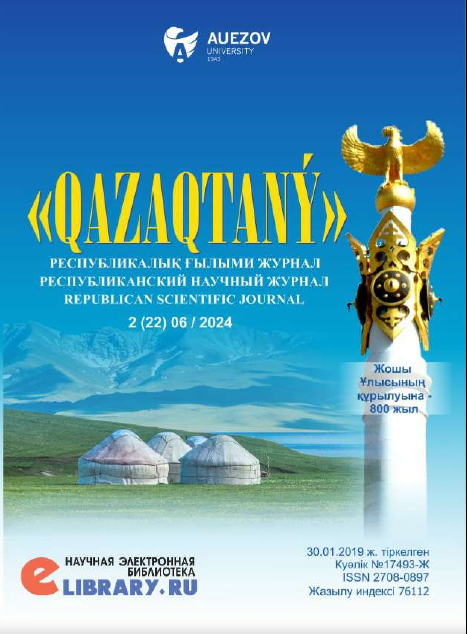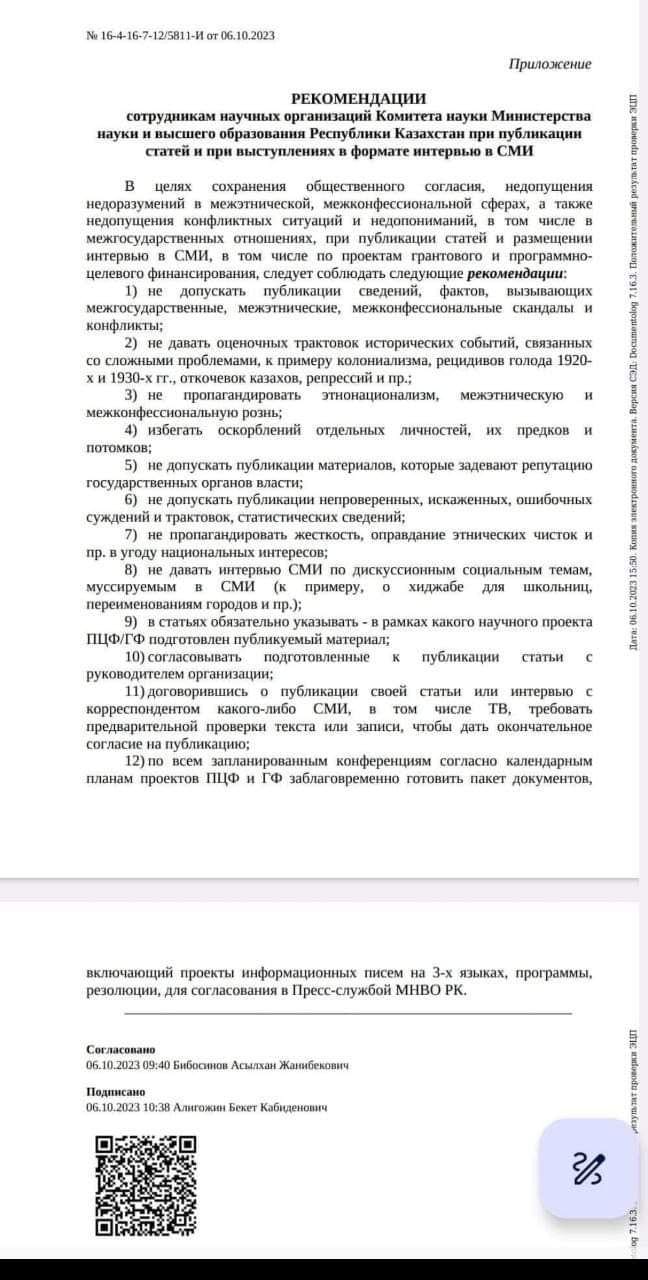СОЦИАЛЬНО-ПРАВОВОЙ СТАТУС КАЗАХСКОЙ ДЕВУШКИ И ЖЕНЩИН ПО СВОДУ ЗАКОНОВ «ҚАРАМОЛА ЕРЕЖЕСІ» НА СЪЕЗДА 1885 ГОДУ, СОСТАВЛЕННОГО «ПОЧЕТНЫМ КАЗАХОМ» АБАЯ (ИБРАҺИМА) ҚҰНАНБАЙҰЛЫ, ИСТОРИЧЕСКАЯ ЗНАЧИМОСТЬ
DOI:
https://doi.org/10.54251/2708-0897.2024.4.22qazКлючевые слова:
бий, «Қарамола ережесі», «почетный казах», право, обязанности казахской девушки и женщины, АбайАннотация
В данном исследовании раскрывается одна из малоизвестных страниц в истории Казахской государственности - правовой статус девушек и женщин по своду законов «Қарамола Ережесі», принятого в 1885 году. Закон вышел спустя почти полтора века после законов Тауке хана «Жеты жарғы» начале XVIII вв. Проведена работа по переводу исторического источника на русский язык, подготовлена хрестоматия и краткий комментарий по структуре сводов законов, отмечены основные направления статей его влияние на родовые связи, влияние русского чиновничьего аппарата в законах, их роль и значение.
Применены методы причинно-следственных связей, предпосылки возникновения данного свода законов, историографический обзор, роль биев и духовенства в сводах законов, влияние на социально-экономическое и общественно-политическое развитие государства, актуальность и практическая значимость сегодня, выделение статуса девушек и женщин, права и обязанности. Причастность к составлению статей Абая (Ибраһима) Құнанбайұлы в качестве «почетного казаха» Семипалатниского уезда.



